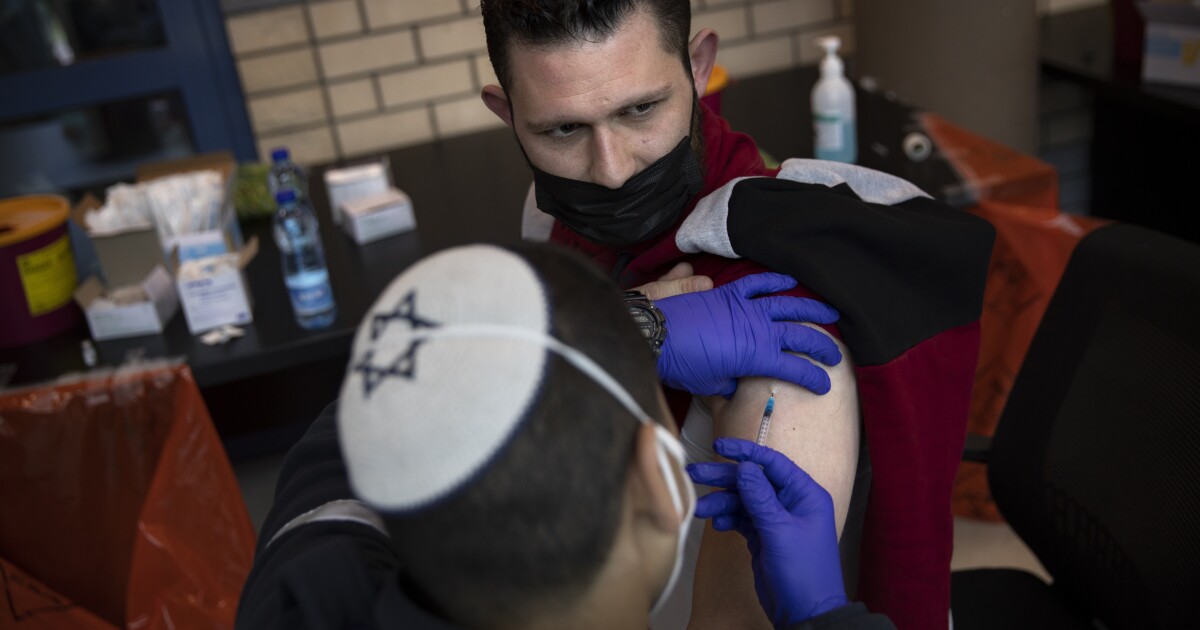In clinical trials conducted last fall, the vaccine developed by Pfizer and BioNTech proved 95% effective in preventing the symptoms of COVID-19.
The question remained whether it and other vaccines would perform well, once they were widely used.
A new study involving more than half a million people who were vaccinated in Israel strongly suggests that the answer is yes.
Compared with people who did not receive the Pfizer-BioNTech vaccine, those who were inoculated were 94% less likely to become ill, according to the study published Wednesday in the New England Journal of Medicine. They also had much lower rates of mortality, hospitalization and – among those who were tested for the virus – infection.
Josh Michaud, a global health expert at the Kaiser Family Foundation who was not involved in the study, called it an “important milestone”.
“So far, we have had to rely on small-scale, scattered reports and unrevised peer findings to get an idea of how effective the COVID-19 vaccines are in the real world,” he said.
The research did not address the critical question of whether vaccination prevents a person from transmitting the virus.
Clinical trials of several vaccines have focused on whether participants have developed symptoms, leaving open the possibility that even those protected from the disease may still be infected and infect others without knowing it.
The new study did not systematically test people for the presence of the virus, so there was no way to measure how many people without symptoms may have been infected.
However, among those who were tested – because they became ill or wanted to ensure that they were not infected – those who received both doses of the vaccine were 92% less likely to get a positive result than members of a control group that had no been vaccinated.
Dr. Noam Barda, one of the authors, said the research is underway to rigorously test people who have been vaccinated to determine definitively whether vaccination prevents infection and transmission.
For now, Dr. Carlos del Rio, an infectious disease researcher at Emory University who was not involved in the study, said that seeing the highly effective data carried from clinical trials to the real world was “very encouraging.”
Although controlled clinical trials are the best way to test the effectiveness of a new vaccine, they are far from a perfect indicator of what an implementation will look like – particularly one so urgent and fraught with challenges.
Those who receive the vaccine sometimes do not meet the prescribed deadlines for taking the vaccines. Vaccines should be sent over long distances and kept cool. Many things can go wrong and hinder effectiveness.
The new study used data from 596,618 people who received the Pfizer-BioNTech vaccine between December 20 and February 1. Another 596,618 that were not vaccinated were selected for a control group based on age, sex, neighborhood, pre-existing conditions and other factors that may influence a person’s likelihood of contracting the virus or becoming ill.
All participants were members of Clalit Health Services, Israel’s largest health organization.
Even after just one dose, the vaccinated group fared much better than their unvaccinated peers. They were 57% less likely to get sick and 74% less likely to be hospitalized. After the second and last dose, these numbers rose to 94% and 87%.
Two to three weeks after the first injection, the vaccine was 72% effective in preventing death.
Jennifer Nuzzo, an epidemiologist at the Johns Hopkins Bloomberg School of Public Health, said the findings “should give us good hope that we can use vaccines to prevent hospitalizations and death, which would effectively neutralize the virus.”
The vaccine worked similarly in all age groups.
Nicholas Davies, an epidemiologist at the London School of Hygiene and Tropical Medicine who was not involved in the study, said that a high degree of protection for the elderly – and only slightly less protection for people with multiple chronic health problems – “gives reason for be optimistic about the vaccine’s effectiveness in the most vulnerable populations. “
The study authors also said they were encouraged that the emergence of coronavirus variants did not appear to have a major impact on the vaccine’s effectiveness.
Clinical tests were conducted when most viruses in circulation were similar to those used to develop the Pfizer-BioNTech vaccine. The new study did not analyze which variants were more common among participants, but B.1.1.7 – the so-called UK variant – represented a large proportion of the general cases in Israel at the end of the study period.
Israel is far ahead of most other countries in its vaccination campaign, with more than half the population inoculated.
